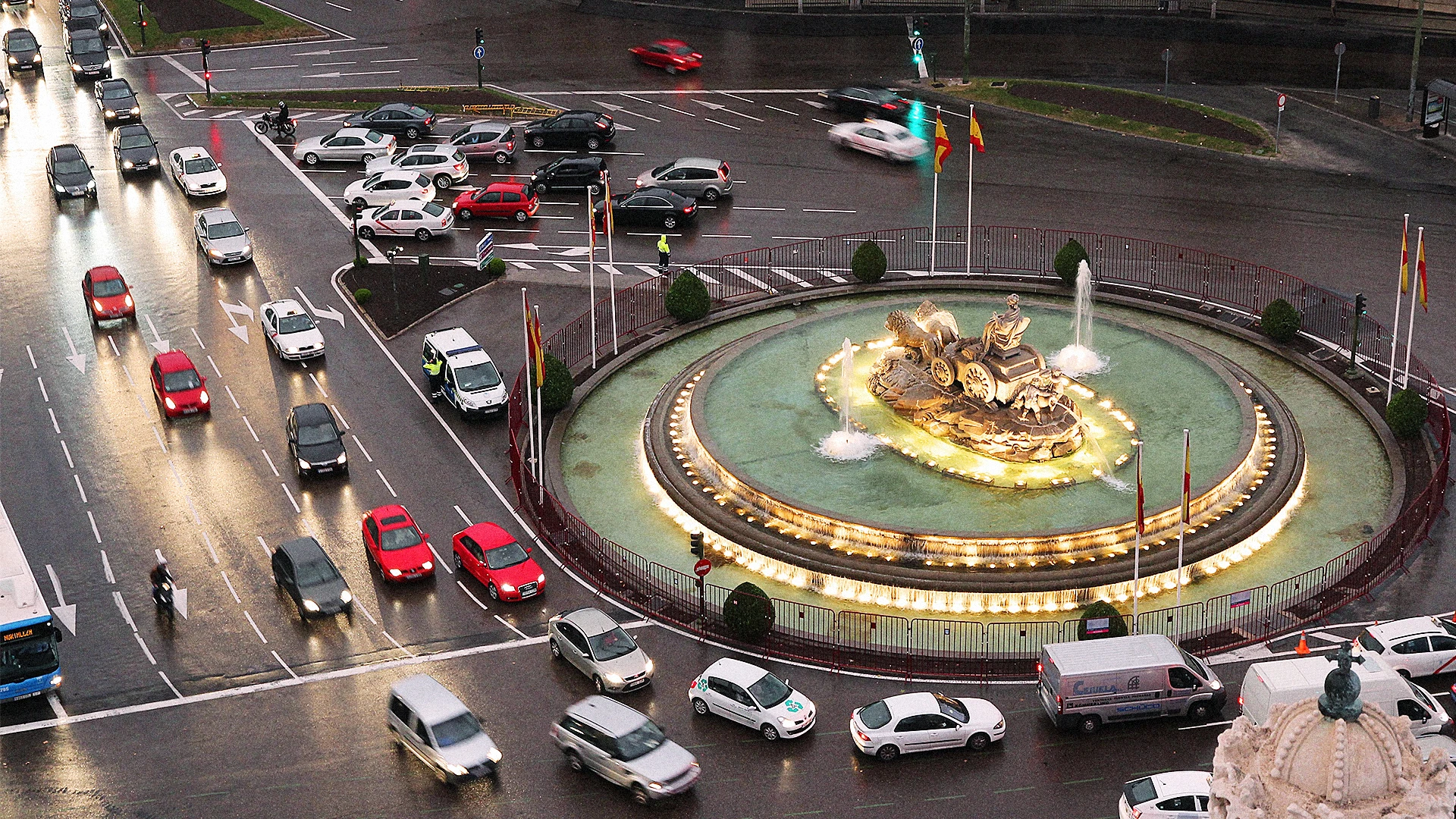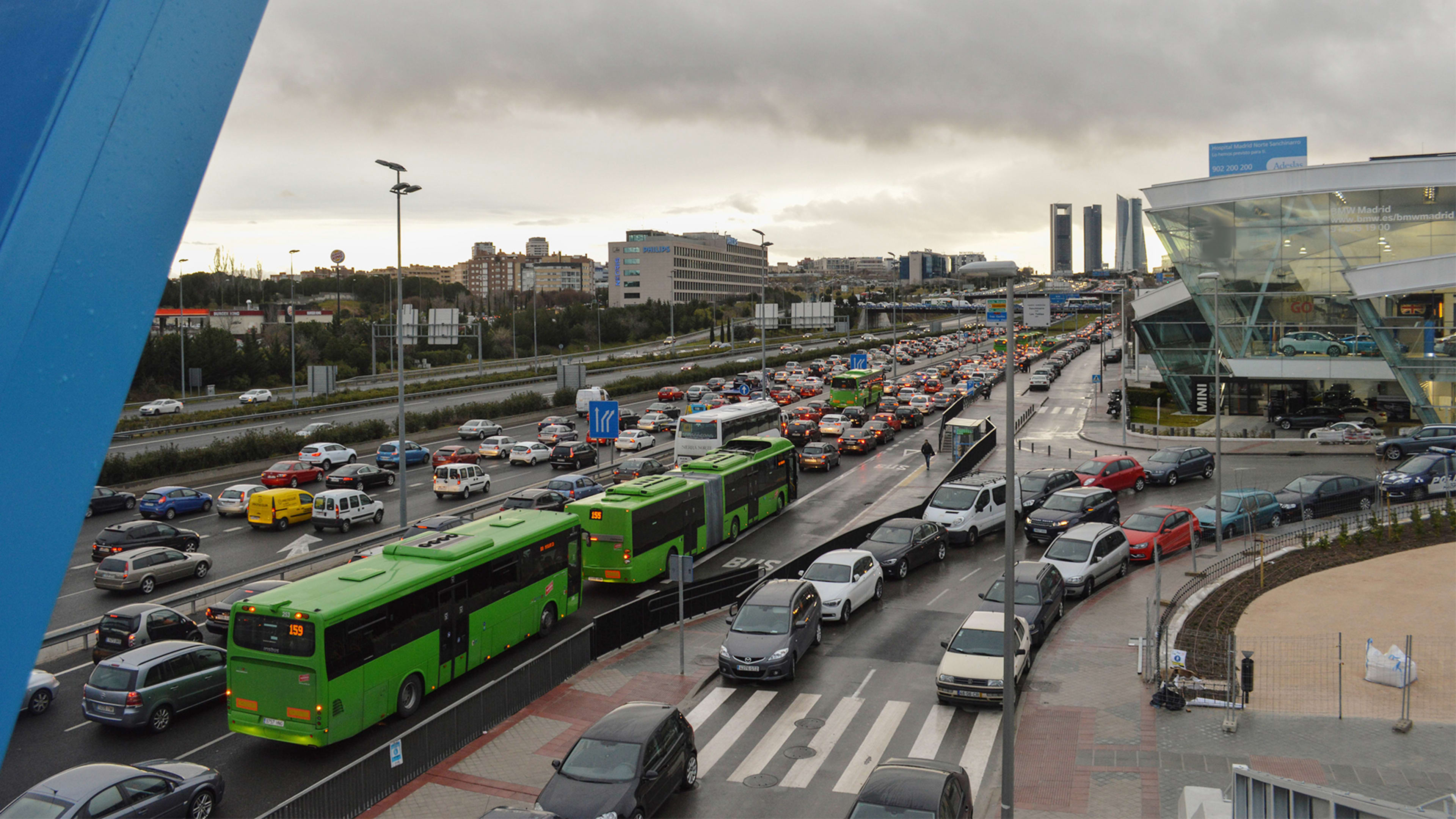When smog levels surged in Madrid in late December, the city temporarily banned half the traffic from its roads. Now the mayor plans to make a more permanent change: Gran Via, the major street that slices through the city center, will soon be open only to bikes, public transit, and taxis.
Right now, commuters tend to use the wide street as a shortcut through the city rather than to visit the neighborhood.
“Most of these cars are not staying downtown,” says Inaki Diaz de Etura from Asociación Pedalibre, a local bike advocacy group. “They’re just going across [the city]. Which is a very 20th-century kind of thing. That’s not happening anymore in many modern cities . . . This is a move to tell society, ‘Hey, through traffic is not welcome in the city center.'”

The plan is part of a larger shift in the city away from cars, after years of car-centric planning. “The city, for decades, has been trying to squeeze in as many cars as possible,” he says. “That’s still what you feel on the streets. A good part of the town has very wide streets. Originally they were meant to have trees and space for pedestrians, but they have been transformed to make as much room for cars as possible.”
Gran Via, which translates roughly as “Broadway,” is a little like Broadway in New York–wide, lined with theaters, and filled with traffic. As the city reimagines it, beginning this year, some car lanes will go away, and the sidewalks will take over some of the road space. Commuter traffic will move to a ring road on the edge of the city.
While a few smaller streets in Madrid have been pedestrianized, Gran Via will be the largest road to ban private cars. More may follow; the city has been discussing cutting traffic in much of the city center for several years. In December 2016, the city temporarily banned outside traffic in the city center for nine days (local stores reported that the change brought them more shoppers, despite any inconvenience for drivers).
“The mentality is changing, but this is in a matter of the last five or 10 years,” says Diaz. “Things are starting to shift to a more sustainable environment, more focused on people rather than cars.”
Recognize your brand’s excellence by applying to this year’s Brands That Matter Awards before the early-rate deadline, May 3.
